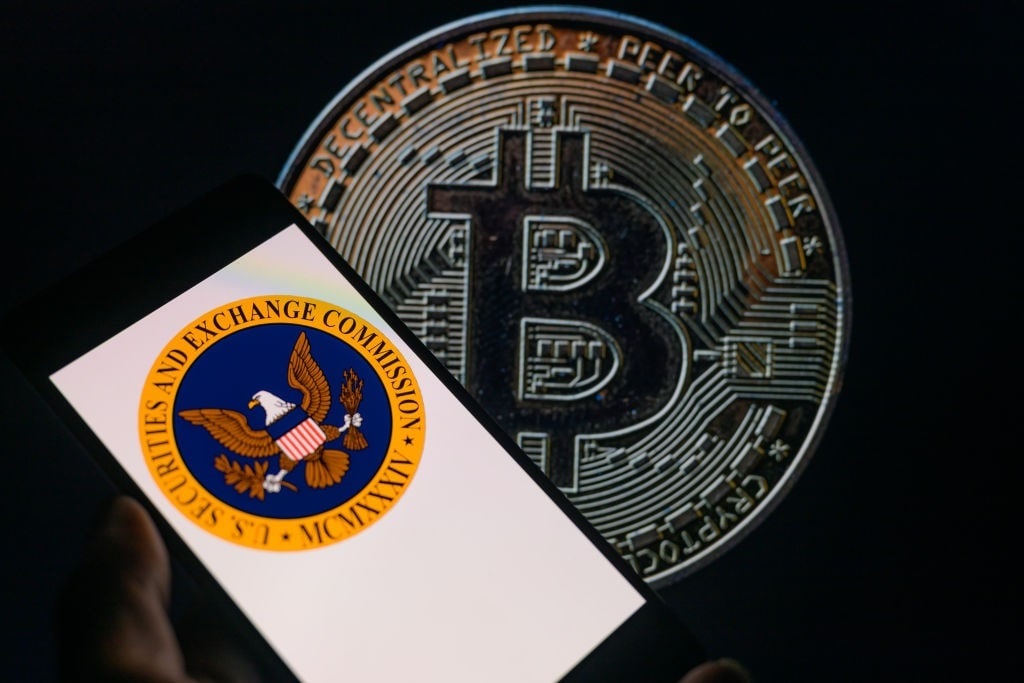Throw in legalized marijuana and protected crypto.
What can Vice President Kamala Harris do to generate energy and enthusiasm among black men? Surveys routinely show that the Democratic presidential candidate maintains significant support from black voters: A new joint poll by The New York Times and Siena College shows that almost 80% of likely black voters would cast a ballot for Harris compared to 15% for Trump. Yet one uncertain demographic could make a difference in the battleground states: black males. Twenty percent said Harris “would not make a good president,” according to an AP-NORC survey.
As a result, the campaign has employed various tactics to strengthen support, even a good old-fashioned scolding from former President Barack Obama. The latest strategy? Free cash.
Kamala Harris to Black Men – Please Like Me
The campaign announced on Oct. 14 that “Kamala Harris will create an Opportunity Agenda for Black Men.” How will this be done? The language is vague enough to confuse whether these ideas specifically target the demographic. The most notable pledge is to offer one million $20,000 loans “that are fully forgivable” for black entrepreneurs “and others” to start a business.
She also wants the government to support education training and mentorship programs “that lead to good-paying jobs for Black men, including pathways to become teachers.” Harris, whose administration has not been friendly to the industry, aims to “protect cryptocurrency investments so Black men who make them know their money is safe.” The vice president proposed launching a national health campaign that concentrates on “illnesses that disproportionately impact Black men.”
Finally, and here is what some might find insulting and hypocritical, Harris suggests legalizing recreational marijuana and producing opportunities “for black Americans to succeed in this new industry.” Why connect weed and black men?
And it cannot be for entrepreneurship reasons since a 2022 study found that black Americans own fewer than 2% of the nation’s marijuana businesses.
The latest policy blueprint comes as Harris has said she wants to give American entrepreneurs a $50,000 tax credit to start a business.
Breaking Down the Agenda
A back-of-the-napkin calculation suggests that a scheme to offer a million forgivable loans worth $20,000 would cost $20 billion. Of course, since the government is not exactly the beacon of efficiency or responsibility, policy analysts could add another few billion dollars to the price tag. The X-verse immediately questioned if such a program would be constitutional since it discriminates against a significant share of the US population.


(Photo Illustration by Jonathan Raa/NurPhoto via Getty Images)
When supporting education, training, and mentorship, does the vice president tout initiatives specific to black men? Or does she champion training and mentorship endeavors also used by black men? Criticisms that this framework was put together at the last minute may be justified since the paucity of precise language is apparent.
Lastly, on the subject of cryptocurrency and weed, Harris’ political record might be a subject of controversy. First, on crypto, the current administration has fought every effort to curb stringent regulations and the Securities and Exchange Commission’s war on the industry. Second, when she first ran for district attorney, she opposed marijuana sales for recreational use. In her re-election bid, Harris doubled down on this position. During her time as district attorney, her San Francisco prosecutors convicted nearly 2,000 individuals on cannabis-related offenses. Now, she desires to provide financial support to black Americans to succeed in the marijuana business.
Regardless of the political lens of these public policy pursuits, the economics do not work, mainly because Harris is continuing the long Washington tradition of picking winners and losers through the tax code and deficit-financed spending.
Business Health in Today’s Economy
The White House has repeatedly celebrated record business applications. While the entrepreneurial spirit is alive and well, the US economy does not hand out participation trophies. The data paints a different portrait from what the current administration has presented.
According to S&P Global Market Intelligence, 512 large US companies have declared bankruptcy this year, six fewer than during the coronavirus pandemic. Epiq Global data show that, in the first nine months of 2024, small business bankruptcy filings surged 41% compared to a year ago. The number of self-employed workers has flatlined since hitting a July 2021 peak.
A September NAACP poll revealed that roughly one-quarter of black men under 50 would support former President Donald Trump. This is a stark difference from previous election cycles. It is unsurprising because the economy and immigration remain some of their top issues, based on the library of polling data. Will $20,000 in free cash be enough to sway the 20% to 25% of black men to vote for Harris in November?
Liberty Nation does not endorse candidates, campaigns, or legislation, and this presentation is no endorsement.

